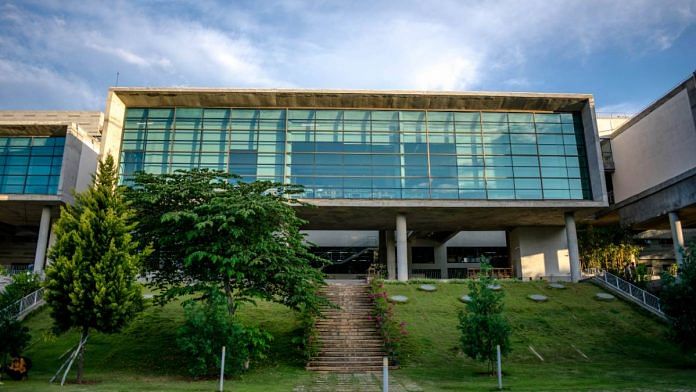New Delhi: The “authoritarian conduct” of a scientist in managing her lab at the National Center For Biological Sciences in Bengaluru was partly to blame for the subsequent data manipulation done in the lab for a research paper, an independent investigation by the Tata Institute of Fundamental Research (TIFR) has concluded.
The TIFR Academic Ethics Committee (TAEC) carried out the probe into allegations of data manipulation in a paper published from an NCBS laboratory. The paper, published in October last year, was on the “Discovery of iron-sensing bacterial riboswitches”.
The investigation concluded that although the retraction of the paper was handled in a professional manner, the Principal Investigator (PI) Arati Ramesh had not been wholly correct in her public statements after the malpractices were discovered.
Moreover, the probe report, published last week, stated that there was some substance in allegations of authoritarian conduct by the PI in her laboratory environment and the entire blame was unfairly apportioned to one researcher — the first author of the study.
Based on its findings, TIFR has recommended that Ramesh be counselled to be more professional in her scientific practices and her conduct in the laboratory.
ThePrint reached Ramesh through email but the scientist declined to comment.
Also read: We created holograms you can touch – you can even shake your virtual colleague’s hand
Allegations of ‘digital alteration’ of images
In October 2020, a team of researchers from NCBS — Siladitya Bandyopadhyay, Susmitnarayan Chaudhury, Dolly Mehta, and Arati Ramesh — published a paper in a peer-reviewed journal Nature Chemical Biology.
However, soon after the paper was published, experts began to notice discrepancies in the images included in the study. Many of the images appeared to have been digitally altered.
These images had been posted on PubPeer — an open, global platform that allows experts to post comments on published studies.
Ramesh initially defended the work, sharing all the raw data from the lab on the PubPeer website immediately after the concerns were raised. However, commenters on the site pointed out that the raw images too had evidence of digital manipulation.
According to a statement put out by NCBS, the institution initiated an inquiry, conducted by a committee including an independent external member.
According to NCBS, Ramesh cooperated fully with the inquiry and a report was submitted to NCBS Director Satyajit Mayor in November last year. The report concluded that image manipulation had indeed occurred, and that it had been carried out by a single individual who was no longer affiliated with NCBS.
Ramesh, in accordance with the committee’s recommendations, then initiated the process of retracting the paper. The paper was finally retracted on 30 June this year.
Also read: India’s private space sector is rising, but wait for Bezos-like ‘joy rides’ will be longer
The probe and its outcome
In a personal statement that Ramesh posted on her website after the retraction, she blamed the manipulation on one author (though she didn’t name him in the initial statement, it later became apparent that she was talking about Bandyopadhyay), who she said had left the lab abruptly within a few days of the investigation without turning in the data related to the project.
However, in July this year, an independent journalist revealed through a series of leaked emails that the first author Bandyopadhyay had been verbally harassed by Ramesh while working at the lab, and that Ramesh’s conduct had been unprofessional. Bandyopadhyay admitted to fabricating data, but said he did so as he was under undue pressure (from Ramesh) to arrive at predetermined results.
He also refuted allegations that he had left the institution “abruptly”.
The institute, in a subsequent statement, then acknowledged that further emails received by the NCBS Director from one of the paper’s authors, contained “allegations of pressure, unprofessional conduct, and a stressful work environment at the Ramesh laboratory”.
The TIFR Academic Ethics Committee then further evaluated all the aspects of the case, interviewing all individuals concerned, and published a statement last week.
It concluded that there was compelling evidence to indicate that the image manipulation and result falsification in the retracted paper were carried out entirely by the first two authors — that is Siladitya Bandyopadhyay and Susmitnarayan Chaudhury — both of whom have admitted to falsifying data.
The third co-author, Dolly Mehta, and Ramesh were unaware of this.
However, Ramesh, who is the corresponding author of the paper and the PI of the laboratory must bear the overall responsibility for not subjecting these ‘results’ to proper scientific scrutiny before the paper was communicated for publication, the report by NCBS stated.
The committee said Ramesh’s scientific carelessness and lack of diligence while communicating the paper contributed substantially to this untoward incident.
While the committee is of the view that no lapses in the behaviour of Ramesh justify the dishonest practices by any of her lab members, “she should be immediately counselled to be more professional in her scientific practices and her conduct in the laboratory”.
TIFR may also create a Student Support Cell across all its campuses, where students at all levels can raise any issues, academic or non-academic, the report stated.
(Edited by Poulomi Banerjee)
Also read: What’s the impact of Covid on mental health? Your hair holds the answer, new study says



